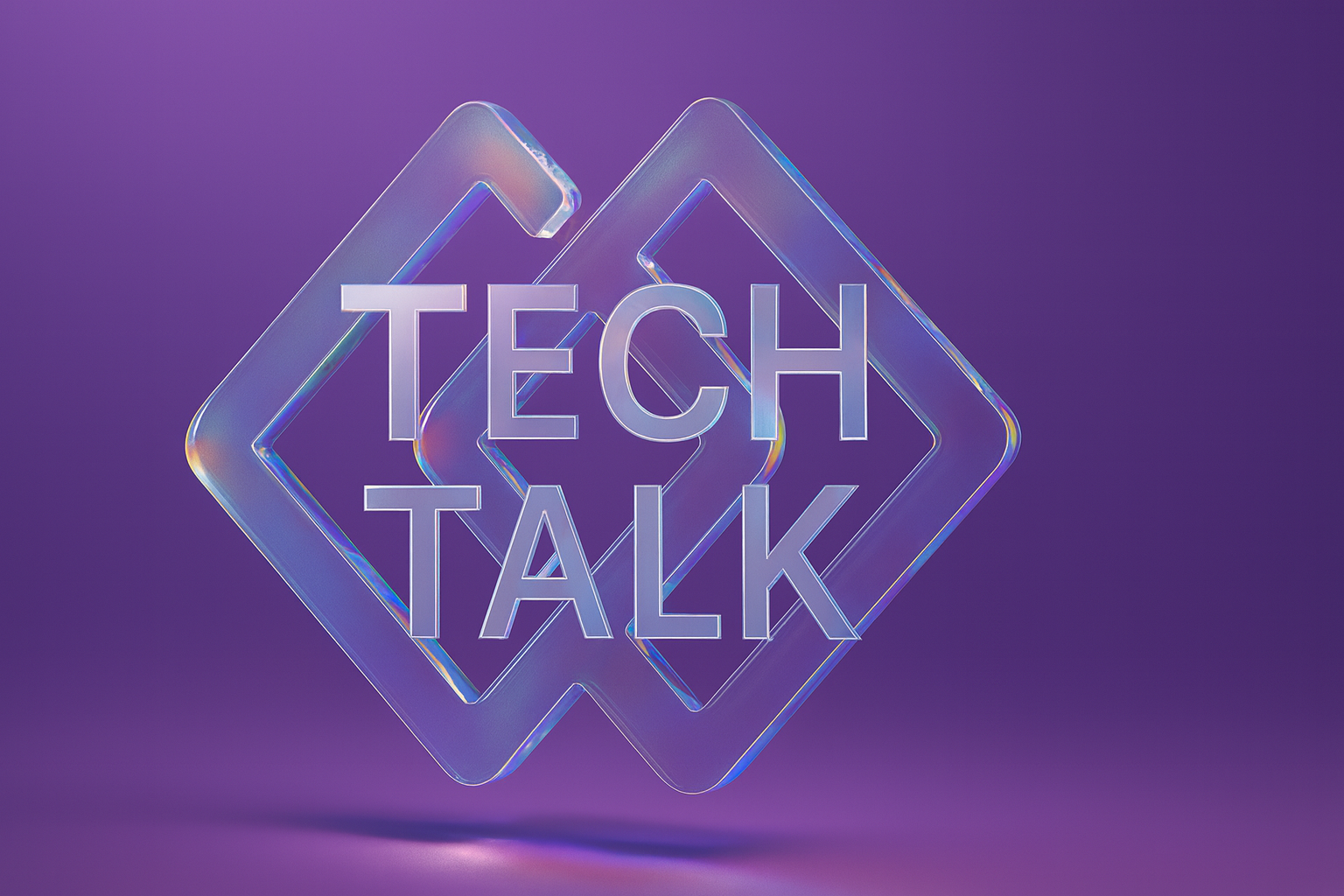The healthcare Artificial Intelligence (AI) market is growing rapidly, with many organizations already seeing meaningful results. In fact, a 2024 survey by McKinsey found that over 70% of healthcare organizations are pursuing or have already implemented generative AI capabilities.
Still, adopting AI in healthcare is far from simple.
Strict regulations, patient privacy requirements, and deeply ingrained workflows create serious challenges to implementation. Buying a new tool isn't enough—success depends on strategy, alignment, and deep domain understanding.
This is where AI consulting becomes critical.
With the right expertise, healthcare organizations can integrate AI responsibly and effectively. A strategic partner helps navigate complexity, mitigate risk, and ensure AI solutions align with clinical goals and compliance standards, unlocking true value across operations and patient care.
Understanding AI Consulting in Healthcare
The use of AI in healthcare consultation connects advanced AI technologies with healthcare's unique demands. Unlike general tech consulting, this specialized service requires expertise in both technical aspects and healthcare-specific considerations like patient privacy, clinical workflows, and regulatory compliance.
Healthcare AI consulting helps organizations implement AI solutions through strategic planning, technical guidance, and implementation support. Key services typically include strategic assessment of AI opportunities, custom implementation roadmaps, technical guidance on solution selection, integration with existing systems, staff training, and ongoing optimization.
Think of AI consultants as specialized guides who understand both the technological landscape and healthcare's unique terrain, helping you navigate challenges that might otherwise derail your AI initiatives.
Why Specialized AI Expertise Matters in Healthcare
Healthcare AI consulting delivers significant strategic value by helping organizations overcome technical complexity barriers. Leveraging advanced AI analytics in healthcare, expert consultants navigate the unique challenges of implementing AI in clinical and administrative settings.
Risk mitigation is another crucial benefit. Healthcare faces strict regulations around patient data privacy (HIPAA) and clinical safety. Consultants with healthcare-specific expertise ensure AI implementations meet these regulations, protecting organizations from legal and reputational risks.
AI consulting also accelerates time-to-value compared to in-house development.
Organizations like Mayo Clinic have used external AI expertise to deploy solutions faster than possible with internal resources alone. Most importantly, strategic AI consulting positions healthcare organizations competitively.
Where AI Consulting Creates the Most Value in Healthcare
Healthcare AI consulting spans a wide range of applications, from enhancing clinical care to improving operational efficiency, patient experience, and financial performance.
AI Partnerships Driving Better Clinical Outcomes
AI consulting firms help healthcare providers implement sophisticated diagnostic and treatment tools that augment clinical decision-making.
In medical imaging, consultants implement systems that enhance radiologists' capabilities. Utilizing Multimodal AI in healthcare, companies like Aidoc have developed AI tools that flag critical findings in CT scans, helping radiologists prioritize urgent cases.
Treatment planning is another significant area. Cleveland Clinic partnered with IBM to develop personalized medicine solutions that analyze patient data to create individualized treatment plans.
Remote patient monitoring is being revolutionized through AI consulting services. Stanford researchers have implemented AI-enabled devices that continuously collect and analyze patient data, enabling early detection of health deterioration.
Enhancing Operational Efficiency with AI Consulting
AI in healthcare consulting addresses operational challenges by implementing systems that streamline operations, optimize resource utilization, and enhance AI-driven decision-making.
Administrative workflow automation is producing remarkable results. AI-powered tools have increased productivity by up to 30% in nursing environments, reducing documentation time and allowing more focus on direct patient care. Additionally, enhancing CRM with AI can further streamline administrative processes.
Resource allocation has been transformed through predictive analytics and AI-driven decision-making. Johns Hopkins Hospital's Command Center, developed with AI consulting expertise, uses real-time data analysis to forecast patient admissions and optimize bed management, reducing emergency department wait times by 30%.
Supply chain management benefits from AI-driven optimization. Consultants implement inventory forecasting systems that reduce waste of perishable medical supplies and ensure critical items are always available when needed. Furthermore, optimizing workflows with AI enhances overall operational efficiency.
Using AI Partnerships to Personalize Care
AI consulting in healthcare helps providers create more personalized, responsive patient experiences.
Consultants enable the development of personalized care pathways. Rush University Medical Center implemented AI-driven treatment plans for patients with chronic conditions, analyzing patient data to create individualized care recommendations.
Virtual health assistants and chatbots provide 24/7 support to patients, enhancing human connections with AI by handling appointment scheduling, medication reminders, and basic health questions. These digital tools serve as an extension of the healthcare team, addressing routine inquiries without requiring staff intervention.
Proactive engagement systems integrate with wearable devices to monitor patient vital signs and activity levels, alerting healthcare providers before serious complications develop. This preventive approach helps reduce hospitalizations and improve chronic disease management.
Revenue Cycle Optimization with AI Consulting
Healthcare financial operations benefit from AI consulting in healthcare by improving financial performance while reducing administrative burden.
AI-driven coding and billing accuracy has been a game-changer.
Consultants implement machine learning solutions that analyze clinical documentation and suggest appropriate billing codes, reducing errors and denials.
Predictive analytics for financial forecasting helps healthcare organizations anticipate cash flow and reimbursement rate changes. By analyzing historical patterns and current trends, and utilizing AI strategies for engagement, these tools provide financial leaders with more accurate projections for better decision-making.
MDI NetworX reports that AI-driven automation in claims processing can improve accuracy by 25%, leading to fewer errors and reduced resubmissions. This innovative approach significantly improves revenue capture and reduces the administrative costs often associated with resubmissions.
How Healthcare Organizations Work with AI Consulting Firms
Understanding the AI consulting process is essential for healthcare organizations considering implementation. Four phases typically comprise successful AI consulting engagements.
Let’s take a look.
Phase 1: Assessment and Strategy Development in AI Consulting
The foundation of successful AI implementation begins with a comprehensive assessment of your organization's readiness and the development of a tailored strategy.
Healthcare-specific AI readiness assessment involves consultants evaluating your technical infrastructure, data maturity, and operational workflows to determine readiness for AI adoption. This includes examining the quality and accessibility of healthcare data, existing IT infrastructure, staff readiness, and regulatory compliance posture.
Data infrastructure evaluation is particularly critical in healthcare where information frequently exists in silos. Consultants analyze your data architecture to identify gaps that could impede AI implementation, helping organizations prioritize necessary improvements.
Opportunity identification involves expert consultants helping identify high-value AI use cases aligned with strategic objectives. Understanding the AI consulting landscape is crucial during this phase to ensure that your organization selects the right partner and strategies for successful AI implementation.
Regulatory compliance planning is essential from the outset. Consultants develop comprehensive frameworks that address HIPAA, FDA requirements, and other privacy laws, establishing the guardrails for safe and compliant AI implementation.
Tribe’s AI strategy formulation services are specifically designed to align AI initiatives with business goals. Their project scoping capabilities help healthcare organizations properly define the parameters of AI projects before significant resources are committed, addressing a key challenge faced by Heads of Data Science and technical leadership.
Phase 2: Solution Design and Vendor Selection
Once the assessment is complete, the focus shifts to designing the right solution and selecting appropriate technologies.
The build vs. buy decision framework helps determine whether to develop custom AI solutions, purchase off-the-shelf platforms, or adopt a hybrid approach. Each path has distinct advantages, and consultants help you evaluate options based on your specific needs, timeline, and resources.
For organizations opting to purchase or partner, consultants establish rigorous vendor evaluation criteria. This assessment examines healthcare domain expertise, technical compatibility, data security, and scalability to ensure selected solutions meet both current and future needs.
Integration planning is critical for seamless operations. Consultants design integration approaches that enable AI solutions to work effectively with existing electronic health records and clinical systems, preventing the creation of new data silos.
Data security and privacy architecture development focuses specifically on healthcare AI implementations. These frameworks address the unique challenges of protecting sensitive patient information while still enabling AI systems to access the data they need to function effectively.
Through their global network of AI specialists, Tribe AI offers healthcare organizations access to industry-specific expertise that ensures solutions are tailored to the unique requirements of medical environments. This approach is particularly valuable for startup executives and healthcare innovators looking to drive innovation with limited internal resources.
Phase 3: Implementation and Change Management
The implementation phase focuses on deploying AI solutions while managing organizational change.
Clinical workflow integration is essential for adoption. Consultants design implementation strategies that embed AI tools into existing clinical workflows, minimizing disruption and making the technology feel like a natural extension of established processes.
Staff training and adoption programs help clinical and administrative staff understand, use, and trust AI tools. Comprehensive training approaches recognize that different user groups have varying needs and concerns about new technology.
A phased implementation approach typically starts with smaller pilots before scaling across departments or facilities. This methodology allows for testing and refinement with minimal risk, building confidence and demonstrating value before broader deployment.
Tribe AI's deployment support services help healthcare organizations execute AI projects efficiently and cost-effectively. Their approach fills capability gaps with external experts, enabling organizations to implement AI solutions without compromising on security or exceeding budgetary constraints.
Phase 4: Monitoring, Optimization, and Scaling
The final phase focuses on ensuring long-term success of AI implementations.
Performance measurement frameworks establish healthcare-specific metrics to evaluate AI systems. These include clinical outcome improvements, workflow efficiency gains, and other relevant indicators aligned with organizational goals.
Continuous improvement methodologies implement MLOps frameworks that enable ongoing monitoring and improvement of AI models. This ensures that systems continue to perform as expected and can adapt to changing conditions over time.
Once AI solutions demonstrate value, consultants develop strategies for scaling successful pilots across departments or facilities. This involves both technical considerations and organizational change management to ensure consistent adoption.
Long-term ROI tracking establishes systems to measure continued return on investment. These frameworks track both financial metrics and clinical outcomes, providing a comprehensive view of the value delivered by AI implementations.
Tribe AI enables healthcare companies to quickly scale AI initiatives while managing costs, achieving growth objectives without exceeding budgets. Their solution ensures that healthcare organizations realize tangible benefits and sustained competitive advantages from their AI investments.
Common Challenges in Healthcare AI Implementation (and How to Solve Them)
Implementing AI in healthcare environments presents unique challenges. This section explores common obstacles and proven strategies for overcoming them.
What Slows Down AI Projects in Hospitals
Healthcare data presents unique complexities that can impede AI implementation. One significant issue is data fragmentation across disparate systems and departments.
To overcome these challenges, successful healthcare organizations focus on data integration strategies that create unified data lakes or warehouses to consolidate information from multiple sources. This provides AI systems with the comprehensive view needed for accurate analysis.
Standardization protocols implement consistent data formatting and terminology standards across departments. This addresses the problem of inconsistent naming conventions and record structures that can confuse AI systems.
Interoperability solutions utilize API-based integration frameworks that enable real-time data exchange between systems. This approach helps organizations maintain existing workflows while still creating the connected data environment AI requires.
Privacy-preserving techniques employ advanced anonymization and federated learning approaches that allow AI models to learn from data without compromising patient privacy. These methodologies are particularly important for collaborative research and multi-institution projects, focusing on enhancing AI data privacy.
How to Stay Compliant When Implementing AI in Healthcare
Ethical and regulatory considerations form a critical component of healthcare AI implementation.
Regulatory compliance ensures AI applications adhere to regulations like HIPAA and FDA guidelines. The lack of specific regulatory frameworks creates uncertainty about liability and approval processes, making expert guidance particularly valuable.
Algorithmic transparency addresses the need for healthcare providers to understand how AI makes decisions, particularly for clinical applications. Explainable AI models allow clinicians to verify the reasoning behind recommendations, building trust and facilitating adoption.
Bias detection and mitigation recognize that healthcare algorithms trained on historically biased data can perpetuate or amplify existing health disparities. AI consultants help organizations implement frameworks to identify and address these issues through algorithmic bias audits and develop internal review boards for AI applications.
Organizational Resistance to AI Consulting in Healthcare
Organizational resistance manifests in several forms throughout healthcare organizations.
Clinician skepticism often arises due to concerns about reliability or fear of reduced autonomy. Healthcare professionals who have seen previous technology failures may be particularly resistant to new AI tools that claim to enhance clinical decisions.
Workflow disruption concerns center on AI solutions that don't integrate seamlessly into existing clinical processes. When new technology adds steps or complexity to established routines, adoption rates typically suffer regardless of the potential benefits.
Successful strategies to overcome resistance include collaborative design approaches that involve end-users from the beginning, focused change management programs that address specific concerns, and phased implementation that allows for adjustment and demonstration of value.
Charting Your AI Healthcare Journey
Building effective, scalable AI solutions in healthcare isn’t about chasing the latest technology—it’s about pairing innovation with strategy, governance, and a deep understanding of clinical realities. As AI reshapes diagnostics, operations, and patient experience, healthcare organizations must move thoughtfully, balancing rapid progress with regulatory compliance and patient trust. Done right, AI becomes not just a tool for efficiency, but a catalyst for better care and stronger financial sustainability.
Strategic AI consulting provides the critical support needed to navigate this transformation. From identifying the right use cases to ensuring regulatory alignment and building adoption-ready workflows, expert partners help healthcare organizations avoid costly mistakes and realize AI’s full potential faster. It’s not about adding AI for AI’s sake—it’s about creating real, lasting value for patients, providers, and health systems alike.
If you’re ready to move beyond experimentation and bring AI into the heart of your healthcare strategy, Tribe AI can help.
Our network of technical specialists and healthcare experts collaborates directly with your team to build intelligent systems that improve outcomes, reduce costs, and align with your mission. Let’s build a smarter, stronger healthcare future—together.













